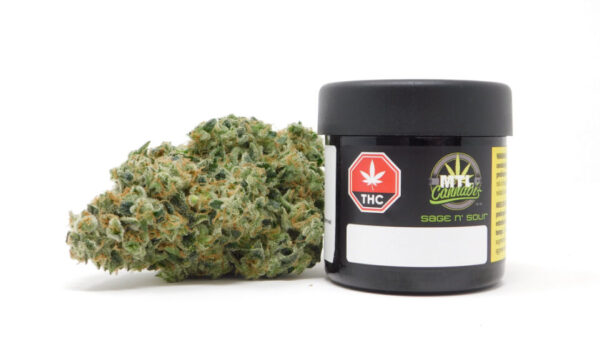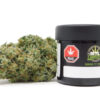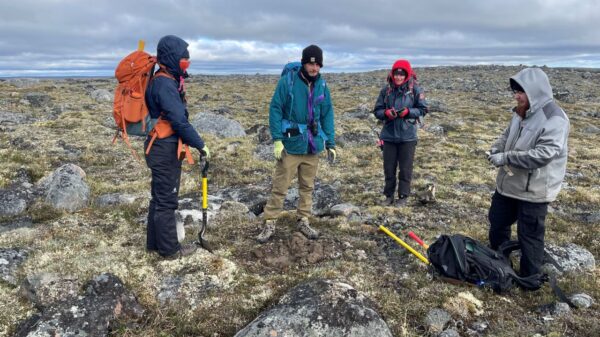The eighth highest scoring company on the Toronto Stock Exchange’s top-30 performing stocks is an extraction, purification and health product manufacturer who owes its market advantage to an unlikely mascot: krill.
Neptune Wellness Solutions (TSE: NEPT) was formed in 1998 when a University of Sherbrooke study, while researching the diets of whales, found krill packed a nutrient-filled punch.
The company found its niche extracting omega-3 phospholipids from the tiny phytoplankton, and the health and wellness company was formed.
“Neptune from the beginning has always been about innovation, science, development and a differentiated type of approach with research,” Michel Timperio, president of Neptune Cannabis Business told Mugglehead in a phone interview.
Cannabis is a logical step from krill oil

Michel Timperio, president of Neptune Cannabis Business.
Timperio has been involved with Neptune since its inception in the late ‘90s, and witnessed the company’s transition towards cannabis in 2016.
When sourcing the necessary quantities of krill became a challenge, Timperio looked around and realized Neptune already had the extraction expertise and equipment required to transition to cannabis extraction during the first wave of legalization.
Neptune has always been a wellness company so cannabis was a natural next step, said Timperio.
The company’s main 50,000 square foot facility in Sherbrooke, Quebec ranks amongst Canada’s largest cannabis processors.
“It’s a very large facility, even for people who have been in the business for six years, they come here and see the place and know there is something truly unique in our DNA,” said Timperio.
Many cannabis extractors are entering the market with user-friendly entrance-level CO2 extraction, which doesn’t require a team of engineers to run, he said.
Neptune designed a lot of its own equipment, and uses both CO2 and ethanol extraction in its Sherbrooke facility with patent pending technology it developed in its krill days. The company is expanding its extraction capabilities by transitioning towards ethanol extraction, which Timperio said is easier to scale.
“We used to do this for almost 19 years, there’s a lot of know-how here. We do pilot testing and a lot of the same processes as when we used to do krill,” Timperio said.

Neptune Wellness Solutions’ extraction facility in Sherbrooke, Quebec.
Neptune’s krill oil technology could input 6 million kilograms of hemp
At the beginning of the summer Neptune was largely CO2 based and had an input capacity of 30,000 kilograms. In June the company added an ethanol extractor which bumped up input capacity to 200,000 kilograms and announced the third phase of expansion, which will see an added 1.3 million kilograms of extraction capacity.
The extraction process uses much of the same equipment with only minor modifications required to transition to cannabis, which means the company has the capacity to expand cannabis or hemp extraction up to 6 million kilograms, he said, adding the expansion is following market demand, and can quickly be adapted to add more capacity.
“We’re looking at doing 1.5 million [kilograms] of biomass extract, which is an expansion on existing equipment. This development will be ready by mid 2020, in time for the fall hemp harvest,” said Timperio.
Keeping an eye on the U.S. hemp market
Neptune is also working on breaking into the American CBD market with this year’s acquisition of North Carolina-based hemp producer SugarLeaf and Forest Remedies Llc in a deal worth up to US$150 million.
“Given that we only recently acquired SugarLeaf and are still in the process of integrating those operations, we estimate that, based on a conservative capacity utilization scenario of 50 per cent, our two facilities could support in excess of $450 million in annual revenues,” said Neptune CEO Michael Cammarata in a statement.
For this fiscal quarter ended June 30, 2019 Neptune reported a revenue of $4.4 million, down from last year’s $5.2 million in revenue. But the company’s share price was up 322 per cent over the past three years according to the TSX 30, which ranked it eighth out of the country’s 30 best performing stocks.
Neptune also signed a long-term extraction agreement with the Ontario-based cannabis producer The Green Organic Dutchman Holdings Inc. (TSX:TGOD) (OTC:TGODF). Green Organic will provide Neptune with 230,000 kilograms of cannabis and hemp biomass annually until 2023.
In early October Neptune also announced a new partnership with International Flavors & Fragrances (NYSE:IFF) to co-develop a line of CBD products for American audiences.
GMP Securities analyst Ryan Macdonell said the collaboration is a strong endorsement for Neptune according to Cantech Letter.

The Sherbrooke facility has an on-site lab where the company tests for cannabinoid health benefits and for potential new synergies between cannabis and other health supplements.
Neptune’s fiscal 2020, with a year end March 31, is likely to generate $66.23 million, said Macdonell, who also rates Neptune shares at a target price of $9 per share, according to Cantech Letter. The company’s strong growth prospects and expansion into US markets means Macdonell recommends investors to buy Neptune shares.
Cannabis, at the end of the day, is a health and wellness product
The company’s future lies with hemp extraction and CBD products, said Timperio.
“Hemp is more of a wellness type of product. It helps you sleep, it’s a pain relief product. Maybe instead of an Advil you want to take that. It’s evolving. There’s no chemistry behind it, it’s completely naturally derived,” he said.
A recent survey by BDS Analytics of cannabis consumers in Colorado found 50 per cent of people take cannabis for health and wellness reasons, with 19 per cent of those surveyed consuming for medical reasons, 31 per cent for wellness and 41 per cent for social and relaxation reasons.
The global proliferation of cannabis is going to be about so much more than a THC buzz, said Timperio.
“The development of cannabis by far will exceed what we know today as just ‘recreational’ and hopefully this will help take away the stigma,” he said.
Neptune will be researching and working closely with emerging science around different benefits of individual cannabinoids, and exploring the potential synergy of combining cannabinoids with other health supplements, he said.














